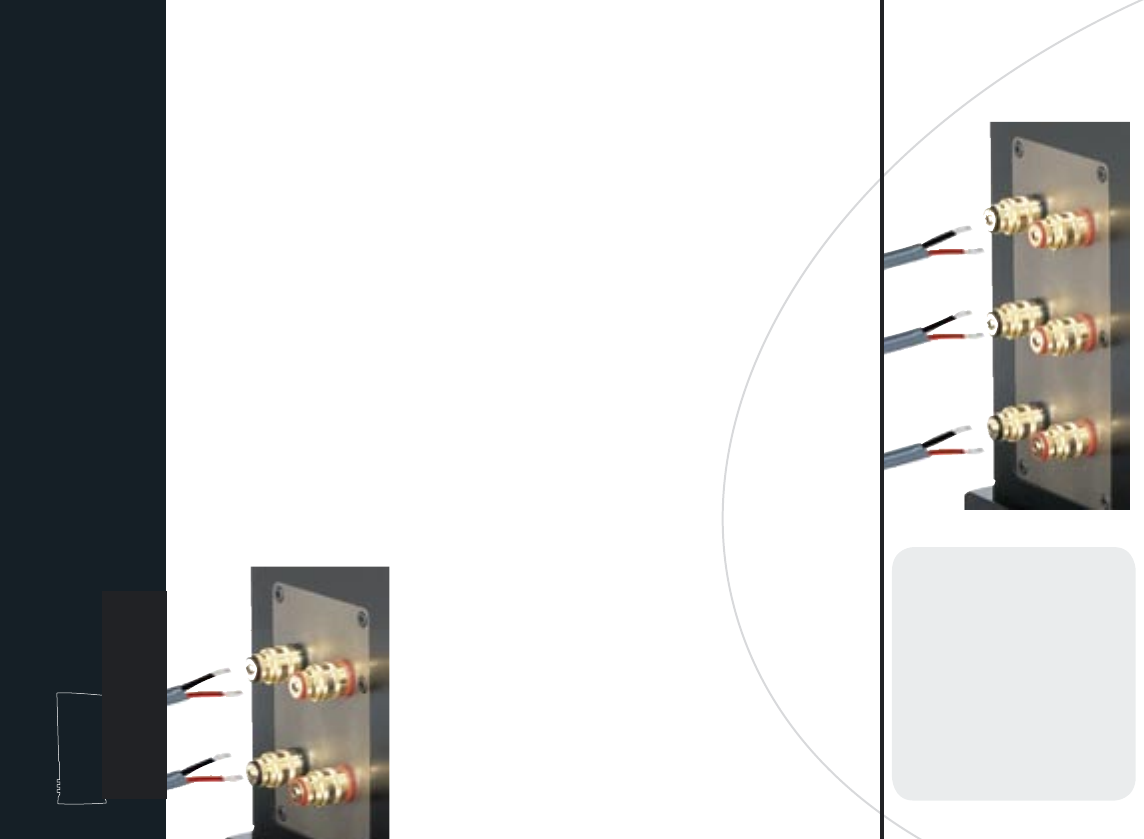
8
9
Tri-wiring
Bi-wiring
Tri-wiring / Bi-wiring
Tri-wiring means that the bass, midrange and treble tone ranges are each
fed through their own separate speaker cable. In the ultimate set-up,
there is an ampli er to handle each range (tri-amping). Tri-amping is the
sophisticated consequence of multi-wiring in a multipath speaker, which
allows the maximum bene t of the EUPHONIA MS5. All other EUPHONIA
models are connected by bi-wiring.
Bi-wiring or bi-amping improves the acoustic quality markedly and can be
highly recommended. Bi-wiring provides greater openness in the acous-
tic image and reduces distortion. Bi-amping - when separate ampli ers
are used for the bass/midrange tone and treble ranges - provides even
greater openness in the acoustic image and adds increased dynamics.
For bi-wiring on the MS5, we recommend that the treble and midrange
terminals are combined and the bass terminals are supplied separately.
DALI® EUPHONIA speakers can, of course, be used with single-wiring. In
this case, the enclosed cables should be used with three stripped parts
that are fed down through the terminals, thus connecting the bass, mid-
range and tweeter terminals.
DALI® recommends that EUPHONIA speakers
are connected with bi-wiring as a minimum to
ensure the best possible conditions for acoustic
imaging.
We recommend DALI® Silver Wave
Four speaker cables for bi-wiring.
For tri-wiring, we recommend DALI®
Silver Wave Four for the treble and
midrange tone range, and DALI®
Silver Wave for the bass. This keeps
powerful currents from the bass sig-
nals away from the cables that carry
the treble/midrange tone signals.
Treble
Midrange
Bass


















